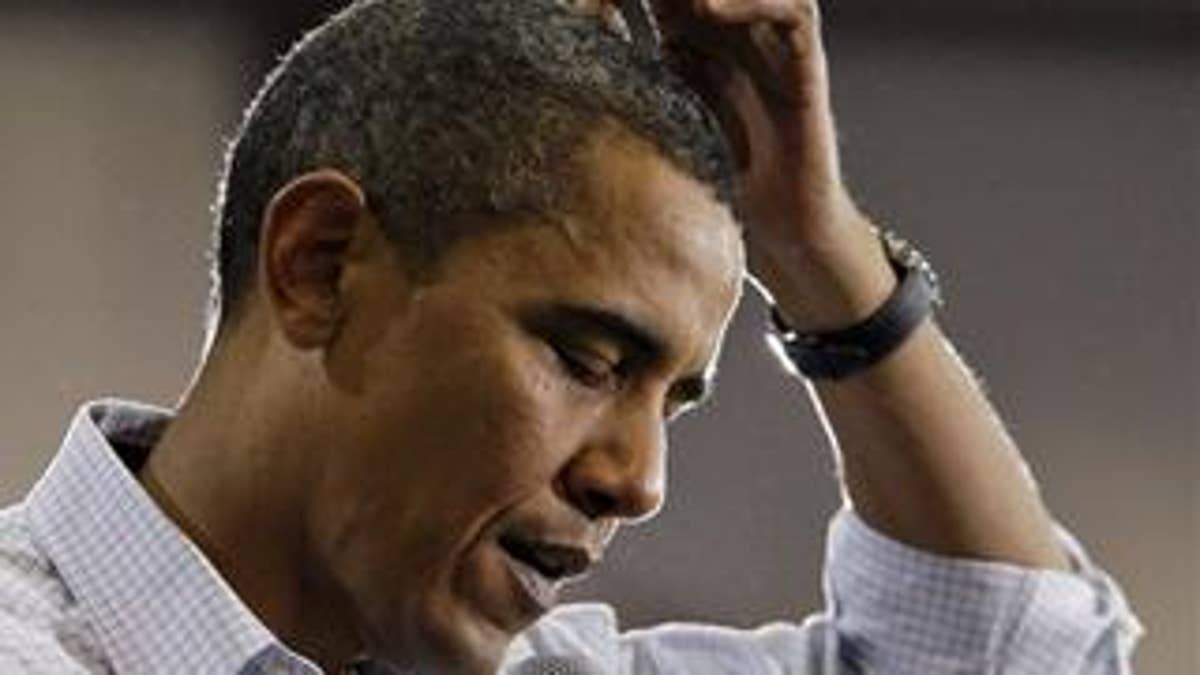
Barack Obama promised on the campaign trail to change Washington if elected president, and he rode a wave of support based partly on that pledge all the way to the White House.
But change doesn't come cheap, and securing health care reform may wind up costing him much of that support -- known in Washington as political capital.
There already are signs that Obama's support is waning -- notably in his approval rating -- as he and Democratic leaders push to pass an overhaul of the nation's heath care system. And many of the people attending legislators' town hall events this month are voicing outrage and skepticism.
"That's really a big problem for a president that's persuasive but suddenly half the country says I just don't trust you," Stuart Rothenberg, a political analyst, told FOX News.
The shift in public tone toward Obama and his agenda raises fresh questions about how much political capital he has left, especially after he scored a hard-fought victory earlier this year to get his $787 billion stimulus package passed and continued the controversial bailout programs for Wall Street and the auto industry that began under his predecessor.
But even though Obama risks using up much of his so-called political capital, it has the potential to pay off in the end if he succeeds in getting legislation passed that closely mirrors his agenda.
Gene Healy, vice president of the Cato Institute and author of the book "The Cult of the Presidency: America's Dangerous Devotion to Executive Power," told FOXNews.com it's unclear what the consequences of "staking his presidency on health care" will be for Obama if he succeeds or fails.
He noted that former President Bill Clinton survived the defeat of his efforts to reform health care and was able to forge a legacy with welfare reform. But, Healy added, Clinton's presidency did not meet initially high expectations.
While most presidents suffer from a gap between the expectations set on the campaign trail and the reality of governance, Obama has widened the gap with his "hope-infused" rhetoric as well as the "aura" surrounding him, Healy said. That has led to the inevitable plunge in his approval ratings, he said.
And despite the sense of urgency with which Obama speaks about health care reform, he seems to face an uphill battle explaining to Americans what's in it for them.
For decades, the health care reform message has been an altruistic one: coverage for all. But polling shows about nine out of 10 Americans have health insurance and 84 percent of them rate it as good or excellent -- not the most receptive audience when you're trying to sell overhauling the U.S. health care system.
"Health care is as deeply personal and powerful an issue as you're going to get," said Jonathan Cowan, president and co-founder of Third Way, a left-leaning think tank.
"And if you can't tell the American people, many of whom have insurance, exactly what's in it for them, that they're going to get taken care of first, that they're going to get security and stability out of this, then you can't generate the political will to cover the uninsured," he said.
The president's top pollster, Joel Benenson, revealed some internal strategy when he spoke before the economic club of Canada earlier this summer, nothing that research told the White House that people hate insurance companies. So the debate was refocused on paining those companies as the "bad guys." Still that message doesn't appear to be resonating with the American public either.
Brand new polling numbers quantify the growing skepticism over proposals being floated by the president and fellow Democrats on Capitol Hill.
Rasmussen Reports has been tracking public support since June, finding a steady drop to this week's all-time low of just 42 percent of Americans in favor of the plans.
The number is even lower in fresh data from a FOX News poll released Thursday. Just 34 percent say they support current reform legislation, down from 36 percent in July. And 49 percent now say they oppose it, up from 47 percent three weeks ago.
The White House said this week there is too much emphasis on the current poll numbers.
"The debate continues and we'll see whether numbers move or change as a result of the continuing debate," White House Press Secretary Robert Gibbs said.
FOX News analyst Karl Rove, who was a top political adviser to former President Bush, said the problem is most Americans see Obama's health care plan as "too much, too expensive, too intrusive."
"They are trying to do too much, too fast, too quick, and I've got a sense after you mislead me on the stimulus and after you mislead me on your other promises that I'll be misled on this one," he said. "So the credibility of this administration is suffering mightily."
FOX News' Shannon Bream contributed to this report.




